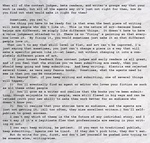Brandon Sanderson
Time for another update on your book, everyone! If you missed the previous update, it can be found right here. This update will get into some nitty-gritty outlining and wordcount details, which some of you might find boring. (Just a fair warning.)
Since the second update, I've indeed started into the book full-time. However, you might have noticed a little delay in the progress bar ticking up. This is because at the end of February (just before going to Hawaii) I decided that Starsight (Skyward Two) needed some more work.
I requested that the publisher push that book back a couple of months (it's now scheduled for first week in December) as I did a medium-sized overhaul based on some decisions I'd made after reading the beta reader comments. I'm pleased to say that revision went really well, and Starsight is in excellent shape. It did put me a little behind on Stormlight Four, I'm afraid. Looking at my tracking spreadsheet (which I used to gauge how I'm moving along) when I started into Stormlight four first part of April, I was about 45k words behind. I'm moving at a good speed, and am about 42k words behind now, with about 15k words finished.
This is merely a way of marking guideposts; I don't intend rush the story in order to meet arbitrary deadlines. This is partially me just trying to give you, and my publishers, an idea of when to expect the book. If I finish it by January 1st, the book can come out Christmas 2020. If I don't, we will probably have to nudge it back.
For reference, one percent on my progress bar is 4k words, and I anticipate the final book being 400k words long. A lot could happen during the next year of writing--the book could go super long, like happened with Oathbringer. Or I could run into some serious plot problems, which require time to work out. (For example, I've already thrown away chapter one after doing a short reading of it at an earlier convention--trying again with a slightly different tone.)
That said, I really like the new first chapter, and am now well into the fourth chapter. I promised you an update on the outline this time, and I'm looking at this book in a different way from the last two. As you may remember, I tend to plot each Stormlight book as if it were three volumes, combined together. (Along with a short story collection in the form of the interludes.)
With books two and three, the outline divided the novels into "books" by section. Part one of Oathbringer, for example, was "book one" of my three-part outline. Rhythm of War, however, is plotted more like The Way of Kings--meaning the separate books in it are divided by viewpoints.
In TwoK, Kaladin's complete arc was "book one" of my outline. Dalinar's was "book two" and Shallan's was "book three" with all of them being interwoven into the final product, and with Part Five being a capstone epilogue to them all. This novel is similar, though with more viewpoints.
We have what I'm calling the Primary Arc, which focuses on four characters who are all together in one place, their plots interweaving. The Secondary Arc is three different characters, their arcs interweaving, but in a separate location from the primary arc. The Tertiary arc is the last two characters, in a third location.
There will be ties between the three arcs, but the book will read a little more like TWoK than Oathbringer--with several separate stories that imply interesting things for one another, but which generally focus on their own goals. Book Five should, then, be an interweaving like Book Two or Book Three.
That's the plan, anyway! I'm not 100% done with the outline yet, as I want to explore some viewpoints first to make sure everything is lining up the way I want.
The next update probably won't be until mid summer, as I want to take a nice chunk of writing time to determine how things are progressing before I come back to talk here.
Until then, please enjoy listening to the community playlist of favorite epic tracks that remind them of Stormlight. This is what came of the previous thread, where I asked for suggested music to listen to while I work on Book Four. I've been doing so, and am slowly cultivating a shorter list of my favorite tracks that I'll release at a later date. Thanks to /u/DevilsAndDust- and my assistant Adam for putting this together.



